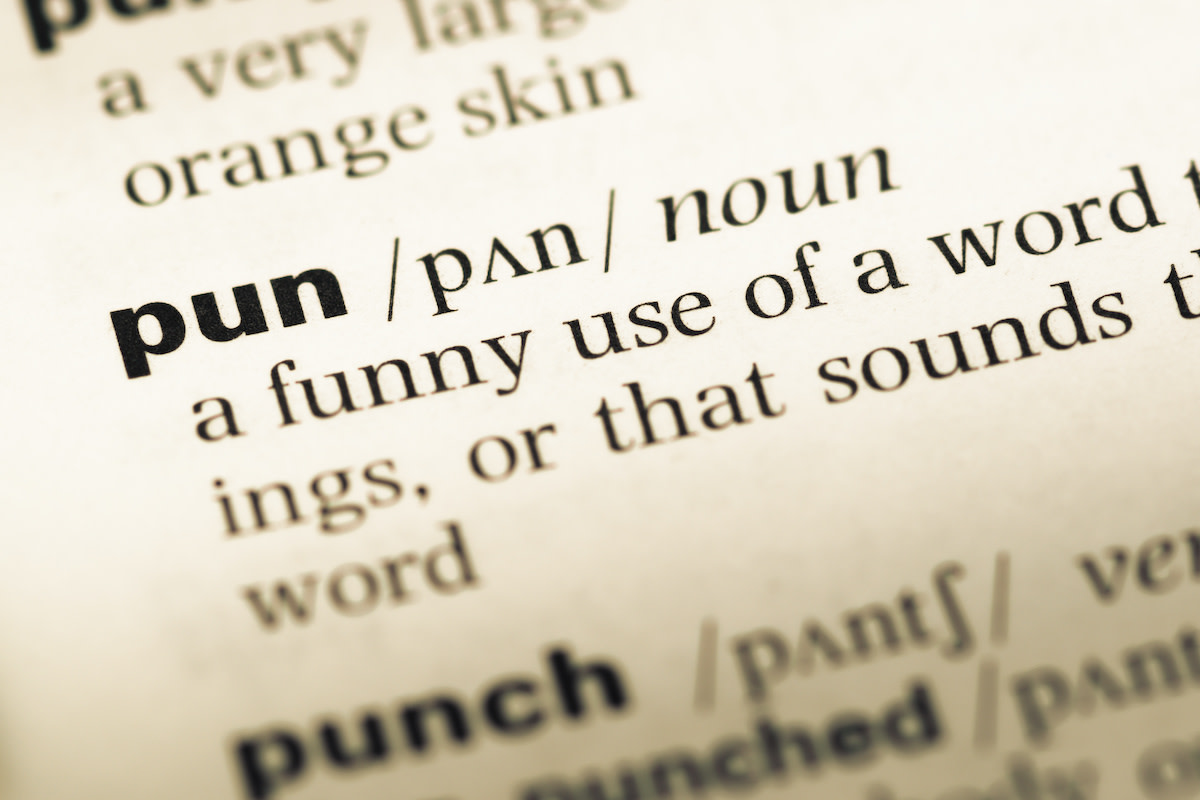How to Write Wordplay: 9 Types of Wordplay
Written by MasterClass
Last updated: Aug 11, 2021 • 3 min read
Learn about the various types of wordplay, from alliteration to spoonerism.
Learn From the Best
What Is Wordplay?
Wordplay is a literary device in which writers employ the definitions or sounds of words for the sake of amusement. An instance of wordplay may be called a play on words. Puns are a popular form of clever wordplay, but there are many examples of wordplay as verbal wit in the English language.
9 Types of Wordplay
Many kinds of wordplay can be humorous, but wordplay also encompasses other literary techniques used for more than just repartee:
- 1. Alliteration: Common in poetry, alliteration is the repetition of consonant sounds. The effect of alliteration can inform tone; it can be playful, as in “balls bounced blissfully below the bench,” or menacing as in “the snake slithered sneakily and stealthily.”
- 2. Homograph: Homographs are words with the exact spelling but different definitions. “He was close to the store when it was about to close” is a sentence using wordplay and homographs. “Close” and “close” are spelled the same but mean different things—the first “close” refers to proximity and the second to shuttering.
- 3. Homophone: Homophones are words that sound the same but have different meanings. Homophones need not be synonyms or antonyms; they are just similar words with unique definitions. Homophones can be spelled the same—making them homographs as well, such as “rose” (the flower) and “rose” (the past tense of “rise”)—or they may be spelled differently, like “blue” and “blew.” Homophones can represent a phonetic form of wordplay, as in the examples “Jim and I are like Gemini twins.”
- 4. Idiom: An idiom is a group of words (either a phrase or a complete sentence) with a meaning distinct from the literal meaning of the phrase. “Chip on your shoulder” is an idiom because the use of words does not mean a literal chip on your body, but rather to be upset because of perceived mistreatment. You can deduce that an example sentence using the expression—“He’s had a chip on his shoulder ever since he didn’t get the promotion”—relies on an idiom to make sense.
- 5. Metaphor: A metaphor is a figure of speech in which you compare two perhaps unlike things. Use a metaphor for the sake of exaggeration, comparison, or clarity. In the example sentence “New York is a concrete jungle,” the city is compared to a concrete jungle because of its tall buildings and construction.
- 6. Onomatopoeia: Onomatopoeia is creating words that phonetically imitate or resemble the described sound of the word. “Bark” is one example because the word sounds like the noise dogs often make. Many examples of onomatopoeia refer to animal noises, such as “purr” or “hiss.” Other examples of onomatopoeia include “bam,” “pow,” and “bang.”
- 7. Pun: A pun, or paronomasia, is a literary technique that exploits the unique potential meanings of words. Sometimes referred to as a double entendre, a pun often involves a word that sounds like others but has a different definition. Punning is a common form of witty wordplay found in comedies, crossword puzzles, and even everyday banter. An example is, “You know my does are dear to me.” In the sentence, the does (female deer) are dear to the owner, but “dear” also sounds like “deer.”
- 8. Simile: A simile compares two unlike entities joined by “like” or “as.” This figure of speech paints a more vivid picture of the subject; Shakespeare often used them in his dramas and comedies. In Romeo and Juliet, he wrote, “O, she doth teach the torches to burn bright! Her beauty hangs upon the cheek of night, like a rich jewel in an Ethiop's ear.” Here, Sheakeapre’s Romeo compares Juliet’s beauty to a “rich jewel.”
- 9. Spoonerism: Named after the Oxford minister William Archibald Spooner (1844–1930), spoonerisms are slips of the tongue that distort the intended meaning of a name or sentence. While many spoonerisms are simple mistakes, they can sometimes be a play on words. “Fighting a liar” is a spoonerism of “Lighting a fire.”
Want to Learn More About Writing?
Become a better writer with the MasterClass Annual Membership. Gain access to exclusive video lessons taught by the world’s best, including James Patterson, Neil Gaiman, Walter Mosley, Margaret Atwood, Joyce Carol Oates, Dan Brown, and more.
